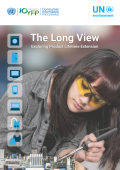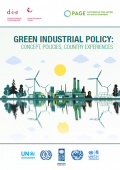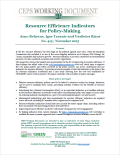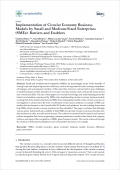



In the EU, resource efficiency has been high on the political agenda since 2011, when the European Commission first included it as one of the seven flagship initiatives in its Europe 2020 Strategy for “smart, sustainable and inclusive growth”. Resource efficiency is not only considered an environmental necessity, but also a political, economic and security opportunity.
This paper first stresses the benefits and opportunities for the EU of improving its resource efficiency. It then explains the added value of the www.measuring-progress.eu web tool, which aims to improve the way policy-makers and others involved in the policy process can access, understand and use indicators for resource efficiency. It provides practical examples of relevant indicators in the form of the EU Resource Efficiency Scoreboard and a case study showing how the web tool established by NETGREEN can be used in practice. The paper concludes with a number of policy messages.

Small and medium-sized enterprises (SMEs) are increasingly aware of the benefits of closing loops and improving resource efficiency, such as saving material costs, creating competitive advantages, and accessing new markets. At the same time, however, various barriers challenge small businesses in their transition to a circular economy, namely a lack of financial resources and a lack of technical skills.
This paper aims to increase understanding about the barriers and enablers experienced by SMEs when implementing circular economy business models. The authors recommend that European and national policies strengthen their focus on greening consumer preferences, market value chains and company cultures, and support the recognition of SMEs’ green business models. This can be achieved through the creation of dedicated market places and communities of practice, for example.
